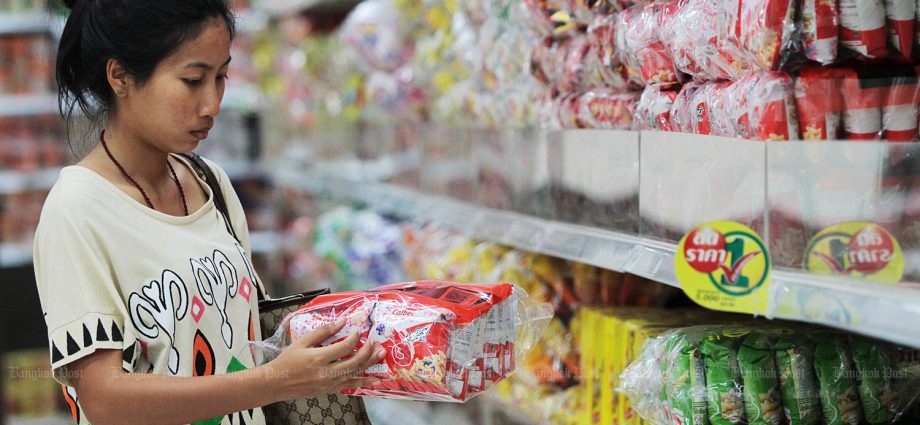
A bill aimed at better protecting children against modern marketing tactics intended to get young people hooked on unhealthy snacks and drinks is now ready to be forwarded to legislators, the Department of Health says.
Overconsumption of unhealthy foods is mainly to blame for the high rate of obesity among Thai children, which has more than doubled in the past two decades, said Dr Pongpol Vorapani, deputy director-general of the department, speaking recently at the final public hearing on the bill.
The Food and Non-alcoholic Beverages Marketing Control bill would build awareness among children and their parents about these tactics, including the use of AI to ensure more children are exposed to advertisements designed to boost their cravings for unhealthy foods and drinks, he said.
Obesity and other non-communicable diseases are considered a major health threat to young Thais and a leading cause of premature death, Dr Pongpol said.
“The rate of obesity has largely stemmed from unhealthy dietary choices, including eating too much sweet, fatty and salty food and drinking sweetened beverages such sodas and carbonated fizzy drinks,” he said.
The marketing strategies adopted by the makers of these products are among the main culprits when it comes to influencing youngsters to make poor choices regarding their daily diet, he said.
Meanwhile, Nongnuch Jindarattanaporn, a lecturer at the Institute for Population and Social Research, Mahidol University, said that more than 50% of Thai children are exposed to such tactics.
Ms Nongnuch referred to a crunchy snack packaged with famous cartoon characters and fizzy drinks glamourised in adverts by celebrities or social media influencers. Social media like YouTube, Instagram, TikTok and X is the top choice to attract young people’s attention to junk food, she said.
“These marketing strategies have raised the target age groups’ cravings for these products by about 45%.”

